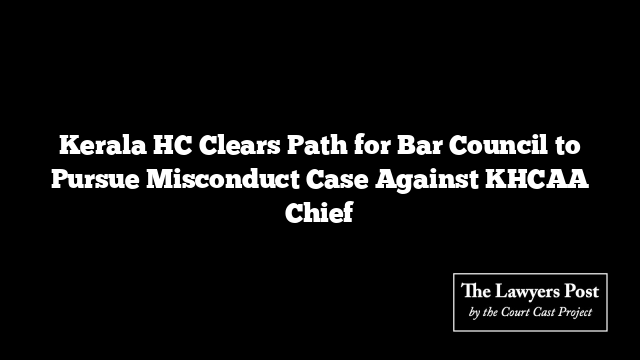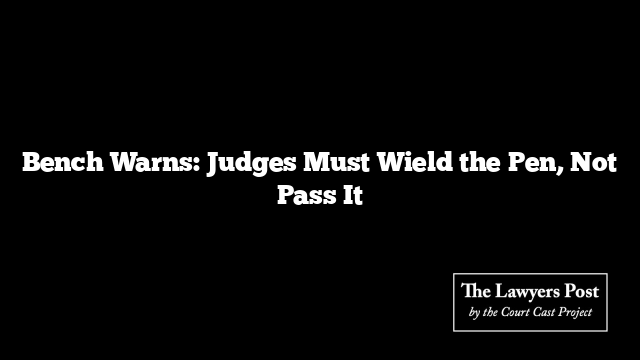The Kerala High Court has given the green light for the Bar Council of Kerala to continue disciplinary proceedings against Yeshwanth Shenoy, President of the Kerala High Court Advocates’ Association (KHCAA), following a contentious courtroom episode with Justice Mary Joseph back in 2023.
At the heart of the matter lies a fiery exchange between Shenoy and the judge that caught the attention of the Bar Council. The Council swiftly initiated proceedings under Section 35 of the Advocates Act, which deals with professional misconduct. Shenoy, however, wasn’t taking it lying down—he challenged the proceedings in court, branding them jurisdictionally flawed and tainted by procedural lapses.
But Justice TR Ravi wasn’t persuaded. The judge ruled that the Bar Council’s notice was well within the bounds of the law, noting that the Council had sufficient “reason to believe” to act on its own motion. Shenoy’s plea to quash the notice was brushed aside as moot—especially since he had already submitted his reply and the process had moved on.
Shenoy’s counterattack didn’t stop at the Council. He alleged that the High Court registry had leaked confidential documents to the media, and even called for open access to court audio-visual recordings. The Court was unmoved. An internal probe by the Registrar General found no evidence of leaks or misconduct, and the judge wasn’t about to start opening the courtroom airwaves to the public.
One of Shenoy’s central claims was that the disciplinary action wasn’t truly suo motu—that it was triggered by a judge’s letter masquerading as independent initiation. But the Bar Council countered with a paper trail: a letter from the judge received on February 9, a meeting on February 11, and a unanimous decision to proceed. No procedural foul, the Court concluded.
The ruling made clear that disciplinary mechanisms for advocates can begin even without a formal complaint, so long as the Council has a legitimate reason to act. Shenoy’s argument that media reports and leaks had prejudiced the process failed to convince. The Court ruled that unless there’s a blatant breach of natural justice, the process itself isn’t up for judicial micromanagement.
In a side note, the contempt of court proceedings arising from the same courtroom incident were already closed by the High Court last October.
With this verdict, the stage is set for the Bar Council’s disciplinary committee to continue its inquiry into the KHCAA President, a reminder that courtroom decorum—and the authority to police it—remains firmly in the hands of both judges and their professional watchdogs.





